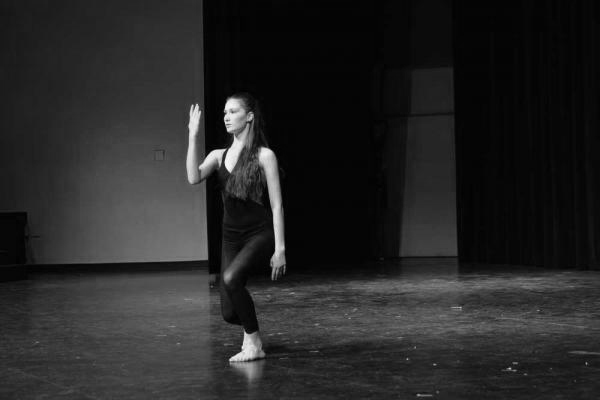Swollen eyes, blotchy skin, and sore muscles stagger down the halls early in the morning after a long day at the gym. After weeks of this pattern, junior Ashley Palmieri was forced to quit her sport because the struggle to balance school and her passion, gymnastics, became too much to bear.
Due to the rigorous courses the school prides itself on, sometimes students must give up their extracurricular activities, such as off-campus sports, to focus more on academic performance. Palmieri is an example of a student who made the executive decision to direct her attention toward her studies and distance herself from her gymnastic career.
“My parents and coaches said, ‘ Do you want to be in the Olympics or be in school?’” Palmieri said.
In the beginning, Palmieri was able to balance school, and gymnastics provided an escape from school and allowed her enter her own world.
“It was a good thing because going to the gym was a stress reliever. It let me break outside of the school bubble,” Palmieri said.
Gymnastics is not the only sport that allows students to relieve school-bound anxiety. Sophomore Lena Asmis said she finds her escape “every day, except Sunday,” at the Ballet Conservatory of South Texas. For 13 years, Asmis has been a passionate ballet and contemporary dancer, and, unlike Palmieri, found a balance between dance and school, and she continues to pursue her passion.
“For me, dance acts as a stress reliever, so in a way it’s my break from school and it clears my head,” Asmis said.
Not all cases call for extreme measures; some athletes are not forced to give up completely, but their participation in their sport is limited. Sophomore Ugochi Akabogu played basketball with the San Antonio Lady Bulls national team for three years and she said she “planned on doing it all four years of high school,” but was cut short. Although she no longer plays on the team, she still volunteers to aid during practices.
“I left for a lot of reasons, mostly concerning the coach and teammates, but I still help them out from time to time,” Akabogu said.
Passion has a price; some students can withstand the weight while others strain to make ends meet. The endeavor is not an academic battle but one that is fought in the brain.
“I still did well in school, but it brought me down emotionally,” Palmieri said.
Athletes have to compensate for study time lost at the gym, so each student athlete develops a strategy that provides them with the most benefits.
“I had to stay up late and wake up early on those days to study and complete any homework,” Akabogu said.
While some stay up late into the night and seek tutoring, others have set a schedule that ensures organization and stability.
“I think after so many years of dancing, I’ve just found a way,” Asmis said. “I have a set schedule where I do certain things. When, and if, I keep that schedule, everything gets accomplished, usually.”
